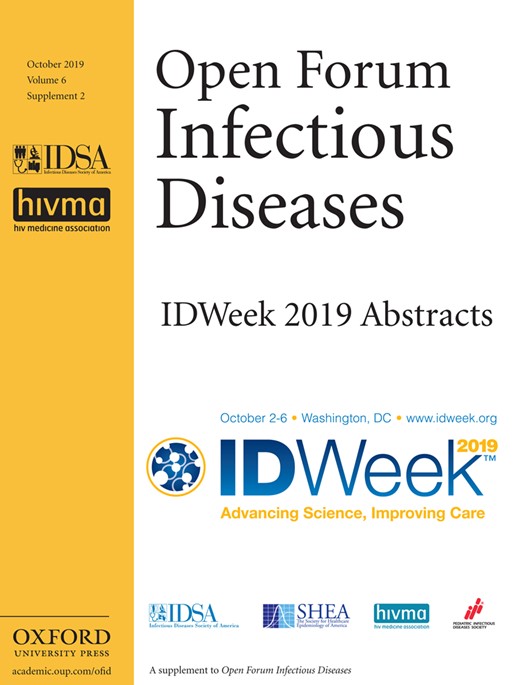-
PDF
- Split View
-
Views
-
Cite
Cite
Bruce M Jones, Kelly Gamble, Summer Sizemore, Christopher M Bland, 1000. The Impact of Pharmacy Students Performing Penicillin Allergy Reconciliation in a Community Health System, Open Forum Infectious Diseases, Volume 6, Issue Supplement_2, October 2019, Page S351, https://doi.org/10.1093/ofid/ofz360.864
Close - Share Icon Share
Abstract
Antimicrobial stewardship programs (ASP) play an important role in the assessment of patients with a reported history of penicillin allergy. Full-time pharmacists performing antimicrobial stewardship face many time barriers and limited resources to interviewing and investigating self-reported allergies. Pharmacy students on Advanced Pharmacy Practice Experience (APPE) rotations during their fourth year can potentially play an important role in this evaluation if properly trained, but data are limited. This study evaluated APPE student interventions on hospital inpatients self-reporting a penicillin allergy.
This quasi-experimental study assessed patients with a self-reported penicillin allergy who were interviewed by APPE students from October 2018 through March 2019. Students on a 5-week infectious diseases rotation were trained in allergy assessment and interview skills by their preceptor and given a daily list of all inpatients with a self-reported penicillin allergy. After reviewing patients with the preceptor, the electronic health record was updated with specifics of the allergy, including the range, reaction, and any β-lactams tolerated since. Interventions included penicillin re-challenge, graded challenge, penicillin skin testing, desensitization, or removal or the allergy. The primary outcome was interventions attributed to APPE student patient interviews.
A total of 12 APPE students participated in the study. Reported reactions ranged from mild allergies (itching, rash) or adverse reactions (nausea, vomiting) to intermediate or severe allergies (hives, anaphylaxis). For the primary outcome there were 162 interventions performed, with 154 verbal, 2 re-challenges, and 6 skin tests. For the verbal interventions, 95 had their allergy updated, 34 removed, and 33 confirmed. None of the 8 patients who were skin tested or re-challenged had a subsequent reaction.
Pharmacy students can expand ASP allergy reconciliation services for patients with penicillin allergies in settings with limited resources. After proper training, students were effective in multiple aspects of allergy reconciliation with a significant number able to have their penicillin allergy removed.
All authors: No reported disclosures.
Session: 129. Antibiotic Stewardship: Allergy Evaluation
Friday, October 4, 2019: 12:15 PM
- hypersensitivity
- anaphylaxis
- patient evaluation
- penicillin
- communicable diseases
- community health services
- disclosure
- exanthema
- inpatients
- lactams
- pharmacists
- hypersensitivity skin testing
- students, pharmacy
- urticaria
- pruritus
- skin
- penicillin allergy
- desensitization
- nausea and vomiting
- electronic medical records
- verbal intervention
- adverse effects
- antimicrobial stewardship
- advanced pharmacy practice experience (appe)
- receptor desensitization
- patient interview
- preceptors
- self-report
- primary outcome measure





Comments